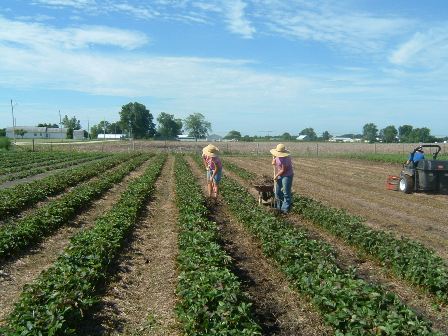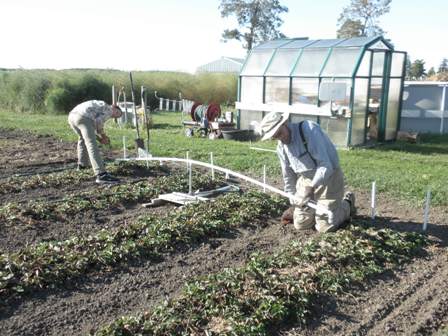|
Welcome! Contact Us Helen's Journal  More Info  eStore Barley Products Bean Products Buckwheat Products Corn Products Lentil Products Millet Nuts Oat Products Pea Products Pet Bedding Popcorn Kernels Rodent Pet Food Rice Products Rye Products Seed Products Soy Products Wheat Products  About The Aardsma Family The Dad The Mom Jennifer (Aardsma) Hall Treasuring Home  Dr. Aardsma's Educational Products Dr. Aardsma's Drills Dr. Aardsma's Saxon Math Checker FAQ Canning Shipping |
Although many of today’s farm families have parents that “work” both off and on the farm, children of farm families have a totally different experience with respect to their parents’ activities each day. For even the part-time farm operator, their children can observe what Mom and Dad are doing each day. The farm family spends more time together working. The children get to see and experience what “work” is and is not. They form their own opinions of these activities rather than guess and assume. As they grow up, these young people assist the parents as they do daily chores. And of course later in life, most farm children significantly participate in the farm “work” activities. While some may not appreciate and embrace these chores at the time, farm families have a stronger bond and embrace family and work values. The children of farmers have a stronger work ethic and are more likely to have a better vision for their future.
Farm families were the norm during the time this country was formed. Our heritage, our culture, and the principles used to form this great nation were all heavily influenced by those who grew up with these same values. Perhaps what the world needs today is more farm families! Children that do not fit the norms of their age group could be the best thing for all of us. As I listened to the hopes and dreams of our scholarship recipients earlier this month, I was reminded of that explanation given to me by the conference speaker when I asked why children of farmers don’t fit the generational stereotypes. I am confident that today’s young people raised on farms who have had positive family and work values instilled in them will provide stability and vision for American agriculture and our society in the future. We are proud of today’s farm and rural youth! And we salute the American farm family who also produces the valuable commodity of children who are raised with values that set them outside the norm of our society.* Footnotes
*1 -- Dave Owens, Illinois Farm Bureau Newsletter, Used by permission.
|
|
|
||||||||||
| Copyright ©1996-2025 Mulberry Lane Farm. All rights reserved;photos and content. | |||||||||||||


